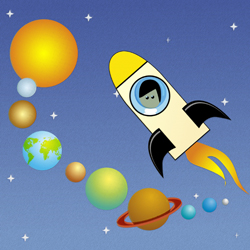Inspiring the future of space exploration
'Engage and inspire the European youth in the space exploration through a scientific contest' (ODYSSEUS)(opens in new window) is a project that used innovative and interactive teaching approaches to promote scientific orientation for high-school students. Using a hands-on science approach, the contest showed students aged 14 to 18 that space and science can be fun and relevant for everyone. The organisation of the contest, in each EU country as well as at a pan-European level, involved a community of volunteer teachers and space experts. A web portal featuring project information and facilitating the registration and submission of entries was launched to reach out to potential contestants. The website also served as a teachers’ resource for novel experiments and projects. In total, 621 students and 207 teachers/coaches registered for the contest: 105 teams from 15 EU countries and 13 teams from 3 non-EU countries were selected. Participating teams were responsible for the design, development and submission of their entries, for one of the three themes. Entries had to be creative and innovative in approach and to seek out answers to scientific issues. The winning teams — made up of 22 pupils and 5 teachers — were invited to the European Astronaut Centre in Cologne, Germany. They presented their projects at the award ceremony held at Space Expo in the Netherlands. ODYSSEUS activities raised interest in science career paths and helped to strengthen science education in school curricula. They also enhanced public understanding on the three selected themes. Other outcomes include the publication of good teaching practices, and the production of resources and applications that can help boost scientific literacy and support teachers in assessing students' efforts in scientific fields. By offering a novel way of directly interacting with science, the ODYSSEUS scientific contest contributed to improving science education, reducing gender stereotypes and inspiring students to appreciate science.



